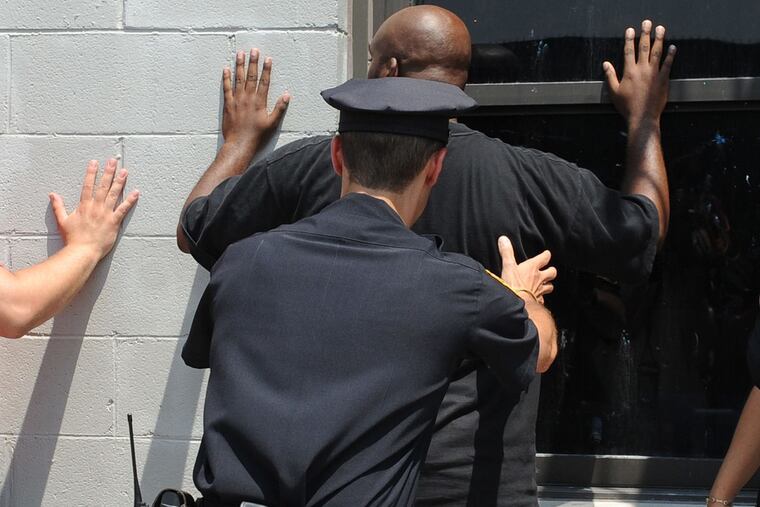Cherelle Parker can do better than stop-and-frisk
Stop-and-frisk is a racist policy that is always an intrusion, often dangerous, and can be deadly.

When the American Civil Liberties Union of Pennsylvania and civil rights attorneys sued the City of Philadelphia in 2010 over the police use of stop-and-frisk, tens of thousands of people were being illegally detained and often frisked or searched by Philadelphia police each year. The vast majority of these illegal stops targeted Black and brown Philadelphians.
Seven months later, we had a settlement agreement with the city in the case Bailey v. City of Philadelphia. As part of the settlement, the Philadelphia Police Department agreed to track data on every stop-and-frisk conducted by its officers. The city also agreed to share that data with ACLU-PA, our cocounsel, and an independent, court-appointed monitor for regular review.
In more than a decade of monitoring Philadelphia’s data on city police use of stop-and-frisk, it’s clear that meaningful progress has been a mixed bag. Even as overall stops are down across the city, including the illegal stops that prompted the lawsuit, the racial disparities that have always plagued stop-and-frisk persist. Another thing that’s apparent from years of monitoring this data: Stop-and-frisk does little to protect public safety and puts those individuals targeted for a stop at risk of a dangerous interaction with police.
Stop-and-frisk doesn’t stop violent crime. A 2019 analysis of the city’s data found that Philadelphia police recovered a weapon during just 1% of stops they conducted. As gun ownership has proliferated post-pandemic, a more recent analysis shows that number at around 5%. There are far more effective ways for police to stop violent crime.
In 2021, the Bailey plaintiffs asked the city to implement a pilot program that would test ending the use of stop-and-frisk for minor offenses like loitering, smoking marijuana, possessing an open alcohol container, or panhandling. Instead of detaining a person engaged in such minor offenses, police are instructed to simply ask the person to stop the behavior and move along.
In the police districts where this pilot program has been running, the use of stop-and-frisk has been reduced without any connected increase in violent crime. In fact, the program frees up police time and resources to engage in more effective ways of stopping and solving violent crime.
We hope to see the program go citywide. That brings us to the role of Democratic mayoral nominee Cherelle Parker and her calls for the use of “constitutional” stop-and-frisk.
To be clear, no politician has called for unconstitutional stop-and-frisk, but that is what happens. Stop-and-frisk in Philadelphia has always been steeped in racial discrimination. There is no way a policy so rife with racial disparities could be considered “constitutional” — the Constitution does not allow for racial discrimination. Until the Philadelphia police address those racial disparities, any call for “more” stop-and-frisk is a call for more racial targeting.
As historically practiced, stop-and-frisk is a racist policy that is always an intrusion, often dangerous, and can be deadly. The average police stop in Philadelphia lasts 13 minutes. Those who are merely inconvenienced might think of themselves as the lucky ones. Too often, a stop can escalate into harassment and even violence. The news is filled with reports of Black men shot or beaten by police after what is often described as a “routine” stop.
Everybody wants to live in a Philadelphia that is safe and secure for our families, our neighbors, and our communities. That means being safe from crime and also being safe from unnecessary interactions with police. After all, stop-and-frisk is one of the most common ways for people to become entangled in the criminal legal system or have violent interactions with police.
It is encouraging that Parker demonstrates a commitment to keeping families safe and secure. Assuming she secures a victory in November, ACLU-PA looks forward to working with her and the police commissioner to continue reducing the use of stop-and-frisk across the city and especially reducing the racial disparities in how it is used. This will allow police to more effectively do their jobs without relying on a fruitless, racist tactic of yesteryear.
Danitra Sherman is the deputy advocacy/policy director of the ACLU of Pennsylvania. Mary Catherine Roper is the former deputy legal director of the ACLU of Pennsylvania and was cocounsel in “Bailey v. City of Philadelphia.”